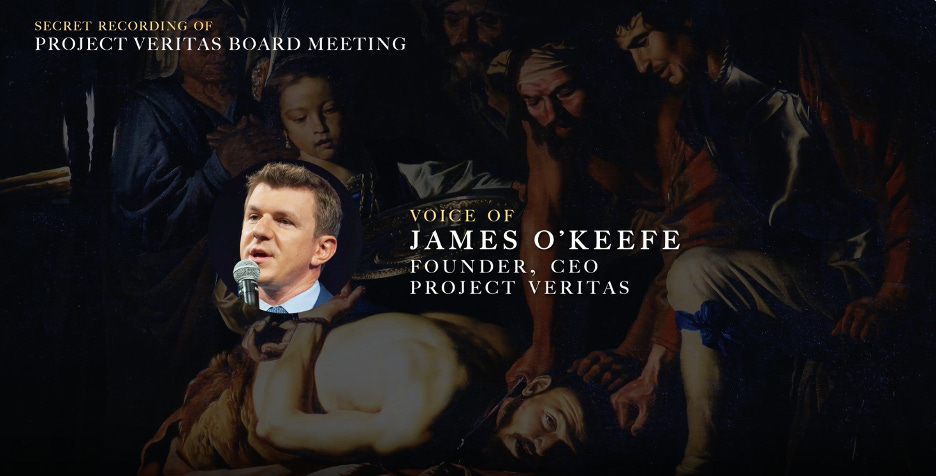
Thomas Müntzer Struck the Fear of God Into Germany’s Rulers
May 27, 2025
No, Let’s Not Build a Dubai on the Adriatic
May 27, 2025There could be more trouble afoot in Robert F. Kennedy Jr.’s Make America Healthy Again movement.
The primary fault line in MAHA land runs between the anti-vaccine veterans and the more optics-focused influencers eager to tackle comparatively uncontroversial issues like reducing chronic illness or getting certain dyes out of processed foods.
The former group thinks the influencers’ food advocacy is both unlikely to succeed and trivial compared to the “real” problem: injections of poison administered forcibly by the government. At their most charitable, the anti-vaxxers see the food-obsessed faction as a distraction that will divert Kennedy’s focus from their priorities.
Kennedy hasn’t even been health and human services secretary for four months, and already this clash has become a recurring problem. It’s energizing the backlash on the right toward Trump’s new surgeon general pick, Casey Means, who is seen by some anti-vaccine activists as insufficiently opposed to vaccinations. And it’s given rise to a conspiracy theory that Kennedy himself is somehow being blackmailed by unnamed but definitely pro-vaccine forces, a wild notion that even his own former presidential running mate has promoted.
But now divisions in Kennedy’s camp may be getting even worse, as arguably the biggest anti-vaccine activist in the country is quitting the MAHA organization.
On May 15, Del Bigtree, a Kennedy ally and hugely prominent anti-vaccine figure, announced he was quitting his role as head of the Make America Healthy Again nonprofit that supports Kennedy’s agenda. Bigtree previously worked as the communications director for Kennedy’s presidential campaign. He attended Kennedy’s Senate confirmation vote, where he told reporters that Kennedy had instructed him personally “to go out and actually make America healthy again.”
While Bigtree didn’t cite any animosity toward Kennedy while announcing the news of his departure from the nonprofit on his podcast, he suggested that his closeness with Kennedy was making it hard to “objectively” criticize him and the government when necessary.
“I have to be able to call balls and strikes,” Bigtree said. “I have to be able to call what I like and what I don’t like.”
Bigtree predicted that reporters would “twist” his resignation into some kind of comment critical of Kennedy. He tried to preempt this by characterizing his role in the MAHA organization as creating “a bit of a conflict of interest”—famously a big issue in Trumpworld. He even said that quitting would make it easier for him to sue government officials, including Kennedy.
“I need to be able to sue the government, even if it’s Robert Kennedy Jr.” Bigtree said.
Bigtree and the MAHA organization didn’t respond to my requests for comment.
During the podcast, Bigtree also suggested that Kennedy has been pulling his punches on vaccines for strategic reasons. In his view, the HHS secretary—who has only reluctantly encouraged people to get the measles vaccine even amid an outbreak in West Texas—is playing “5D chess.” Bigtree described it as an approach that might work for Kennedy, but doesn’t suit him.
“I am not a chess player. I am a truth teller,” he said.
A few days after Bigtree’s resignation was announced, Jeff Dornik, the head of conservative social-media platform Pickax, posted on X that Bigtree had resigned over a vaccine policy dispute.
“I’ve been told that someone has been trying to stop him from talking about vaccines,” Dornik posted on May 21.
Dornik did not elaborate who was trying to “stop” Bigtree from addressing the topic. But in his resignation announcement, Bigtree did seem to hint that dissatisfaction with the administration’s handling of vaccines had influenced his decision. He questioned whether the then-upcoming HHS report on children’s health would be critical enough of vaccines, or if food advocacy would instead predominate.
“We know food is an issue, but are we focusing enough on vaccines?” he said.
His suspicions turned out to be fairly accurate: The final version of that report was indeed relatively light on attacks on vaccines, at least by the MAHA anti-vaxxers’ standards.
While Bigtree insisted that he wasn’t leaving the group as a direct result of infighting, during his resignation podcast, he did acknowledge a problematic degree of factionalism among the figures surrounding Kennedy. MAHA, he said, needed to “get rid of some of the infighting that’s going on.”
When undercover video provocateur James O’Keefe releases a new video, he’s typically taking on a big target: ACORN, Jeffrey Epstein, the anti-Trump deep state itself.
But last week, O’Keefe published an hour-long premium “documentary” that is essentially about how much his former employees and board members hate him.
I came away from watching The Truth About Veritas—available for only $9.99!—thinking that members of O’Keefe’s former organization really loved making rude memes about O’Keefe and then for some reason sending those memes directly to him. I mean, they really didn’t like the guy!
O’Keefe has been in the wilderness for two years following his bitter departure from Project Veritas amid a dispute with just about everyone else who worked there. Allegations against him include misspending Project Veritas money, bizarre behavior, and a passion for musical theater. It was one of the biggest implosions on the right in recent memory, and people couldn’t get enough of the stories about what went down at the organization: O’Keefe had allegedly taken an unnecessary helicopter flight on the organization’s dime, and someone purportedly defecated on the deck of a boat during a raucous party. One former colleague claimed O’Keefe had kept women’s underwear in his safe.
O’Keefe seems hellbent on getting revenge by retaking Project Veritas. His new documentary is just one piece of it. He’s also been filming investigations standing in front of the Project Veritas logo, fueling speculation among his fans that he’s coming back to power. And he’s been on a media tour, appearing on shows hosted by the likes of Tim Pool and Laura Loomer during which he has claimed he’s in talks to get his organization back.
This seems a little hard to believe. O’Keefe and Project Veritas are currently locked in a two-year-long legal battle, with Project Veritas’s remaining leadership accusing him of making off with its donor list. The discovery and depositions from that court fight appear to have been used to fill out much of this documentary.
On the other hand, Project Veritas has little reason to exist without O’Keefe. After a halfhearted and ultimately abortive attempt to relaunch under a new CEO, the group is now mostly defunct—the most recent post on its website is over a month old. And O’Keefe is legally in the clear after the Trump administration recently closed a long-running FBI investigation into Project Veritas’s handling of Ashley Biden’s diary.
Project Veritas didn’t respond to a request for comment.
In The Truth About Veritas, O’Keefe says he didn’t do anything wrong—nothing worth pushing him out over, at least. He runs through the allegations in exhaustive detail, even interviewing a pregnant woman whose sandwich another employee claimed he stole. (The woman, identified in an onscreen name key only as “the formerly pregnant lady,” says O’Keefe is innocent on that count, at least.)
O’Keefe’s larger argument is that elements on the Project Veritas board were out to get him, and he implies that they were working on behalf of Big Pharma. He doesn’t explain the case with as much detail as he does the sandwich theft allegation, but this is only Part 1! Presumably, he has more to reveal in the next installment.
O’Keefe devotes a surprisingly large amount of the video to demonstrating how rude his employees were to him, listing out numerous mean texts they sent him. For example, one of them sent a picture of him that had been edited to put a dildo in his face.
That’s not close to the worst. Another Project Veritas employee sent “a text message of me eating a sandwich covered in semen,” O’Keefe said, offering his phone to the camera to show the image and the messages that followed. “He said ‘cry harder, James, they’re effing memes.’ That’s sexual harassment!”
It’s difficult to convey how self-pitying this project is. O’Keefe likens his treatment at the hands of the Project Veritas board to a “struggle session” and a “crucifixion,” and he said that after the meeting in which he was shoved out, “the people with these grievances” actually sent him a picture in which he had been photoshopped onto a cross.

At one point, he plays an audio recording of himself apologizing to the board, with his words set to a mournful score. In keeping with the style of the video, the apology recording is illustrated with a series of paintings. One of these background images is The Beheading of John the Baptist by seventeenth-century Dutch painter Matthias Stom. (It seems we’re meant to take O’Keefe to be, metaphorically, John the Baptist.)

At one point in the video, O’Keefe reviews footage of happier days at Project Veritas, just him yukking it up with his undercover operatives.
“It doesn’t look like a hostile work environment,” he said. “It looks like a special place.”
Great Job Will Sommer & the Team @ The Bulwark Source link for sharing this story.




